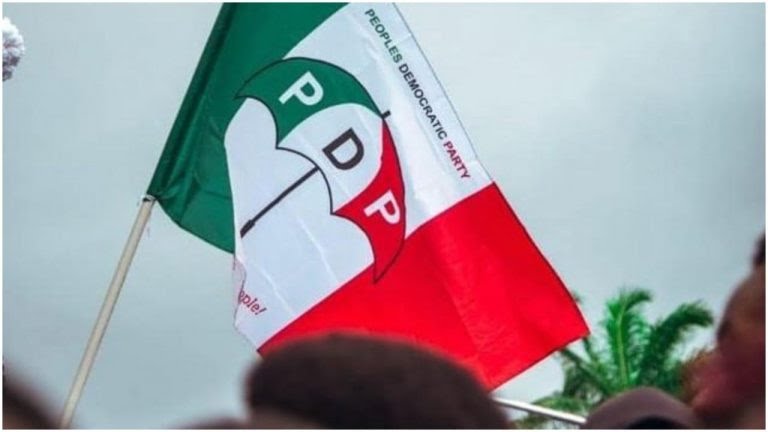The Peoples Democratic Party (PDP) has launched a scathing critique of President Bola Tinubu and the ruling All Progressives Congress (APC), accusing them of resorting to “endorsement shopping” in a desperate attempt to secure a second term in the 2027 elections. The PDP argues that this frantic pursuit of endorsements from various APC factions and even some opposition figures is a clear indication of the APC’s failure to effectively govern and deliver on its promises to the Nigerian people. The PDP contends that a successful administration would let its accomplishments speak for themselves, rather than resorting to orchestrated displays of support. The PDP’s National Publicity Secretary, Debo Ologunagba, articulated this position during a press briefing, highlighting the party’s focus on its upcoming National Convention as a crucial step towards reclaiming power in the next election cycle.
Ologunagba emphasized the PDP’s commitment to internal restructuring and unity, contrasting it with what he described as the APC’s panicked scramble for endorsements. He asserted that the APC’s actions betray a deep-seated anxiety stemming from the PDP’s revitalization and growing public support. The PDP, he claimed, is focused on “reconciliation, getting people together, working together and giving everybody a sense of belonging,” a stark contrast to the APC’s alleged desperation. He further argued that the APC’s preoccupation with endorsements is a tacit admission of their failure to govern effectively and deliver on their promises. This, Ologunagba suggested, is driving the APC to seek validation through endorsements rather than through tangible achievements.
The PDP’s spokesperson also underscored the urgent need for comprehensive electoral reforms to ensure the integrity of the 2027 elections. He specifically called for the real-time transmission of election results, a measure he believes is crucial to preventing manipulation and guaranteeing the accurate reflection of the people’s will. Ologunagba expressed concerns about what he termed “institutional manipulation” of the electoral process, citing inconsistencies in the performance of the Bimodal Voter Accreditation System (BIVAS) compared to the reliability of other electronic transactions like Point of Sale (POS) machines and Automated Teller Machines (ATMs). He questioned why these other systems function seamlessly even in remote areas while BIVAS often experiences glitches, suggesting deliberate interference.
The PDP insists that the Independent National Electoral Commission (INEC) must be held accountable for ensuring a transparent and credible electoral process in 2027. They demand that BIVAS, the electronic results transmission system (iREV), and other technologies be legally mandated and strengthened to prevent future irregularities. Ologunagba warned that the PDP would not tolerate any excuses for technical failures or glitches in the 2027 elections, emphasizing that the existing infrastructure in the country is capable of supporting seamless electronic transmission of results. He vowed that the party would lead the charge in ensuring a credible electoral process and resisting any attempts to compromise the right of Nigerians to freely choose their leaders.
Ologunagba’s statements reflect a broader concern within the PDP about the credibility of the electoral process and the APC’s alleged attempts to manipulate it. The PDP views the APC’s pursuit of endorsements as a diversionary tactic, an attempt to project an image of strength and popularity while masking their underlying failures in governance. The PDP’s focus on electoral reforms and their commitment to challenging any perceived irregularities underscore their determination to ensure a level playing field in the 2027 elections. They are essentially arguing that true legitimacy comes from demonstrable achievements and the will of the people, not orchestrated endorsements.
In summary, the PDP’s accusations against the APC paint a picture of a ruling party struggling to maintain its grip on power, resorting to endorsements as a substitute for genuine performance. The PDP, on the other hand, is projecting an image of renewed vigor and a commitment to democratic principles, emphasizing internal unity and the need for electoral reforms. The stage appears to be set for a potentially contentious electoral battle in 2027, with the PDP positioning itself as the champion of free and fair elections and a viable alternative to the incumbent APC. The coming years will reveal whether the PDP can capitalize on the perceived weaknesses of the APC and recapture the trust of the Nigerian electorate.














